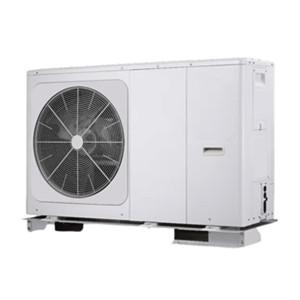Air Source Heat Pump Noise Assessment
In climates with moderate cooling and heating requirements, heat pumps offer a more environmentally friendly alternative to air conditioners and boilers.
Air source heat pumps take heat from outside air and use it to heat your home; include radiators, hot water supplies, underfloor heating systems, or warm air convectors. It can also meet the air conditioning needs of your home.
Compared to traditional heating systems, ASHP is more environmentally friendly because the heat it extracts is naturally renewed - so the only impact on the environment is the electricity it uses.
How does a heat pump work?
Air-to-water systems distribute heat through a central heating system, while air-to-air systems produce warm air that is circulated through your home by fans.
Systems involving heat transfer use an external condenser unit to convert substances from a gaseous state to a liquid state by cooling. Air conditioning systems have a heat exchanger section that cools and condenses incoming refrigerant vapor into a liquid. The compressor raises the pressure, and the fan blows outside air through the heat exchanger to cool the refrigerant.
The air conditioner condenser is one of the most important components in any air conditioning system. During cooling, the compressor pressurizes the refrigerant into a hot liquid, while during heating, the opposite is true.

Air source heat pump noise regulations
There are official planning requirements regarding air source heat pump noise. The air source heat pump must be less than 42 decibels measured from the distance between the unit and the next door. At a distance of just one meter, noise levels can be between 40-60 decibels, so noise levels drop significantly as you move away from the system. In practice, this means that the only way an ASHP can cause problems for a neighbor is if the installation plan is not strict and the heat pump is not properly positioned. Noise pollution is calculated during the design phase of the heat pump installation to avoid any operational noise disturbing your neighbours. Outdoor units should be located as far away as possible from adjacent properties.
Why is the heat pump making so much noise?
Heat pumps can be noisy due to their components. The four main elements of a heat pump -- the compressor, air conditioner condenser, expansion valve, and evaporator -- can be heard while running, but especially the compressor and fan can cause noise problems.
Noise includes not only the sound of components working, but also vibrations. The air makes noise as it passes through the heat exchanger, the intensity of which depends on the pressure. There will be a humming noise from the AC unit and heat pump and the hum of the motor. If frost builds up in the heat exchanger, it will create more sound on top of the existing fan noise. The constant humming is probably the most disturbing aspect of a heat pump.
How to Combat Heat Pump Noise
If you plan to install an air source heat pump, Sound Planning can effectively combat noise to protect nearby properties.
Our solutions include ASHP horizontal enclosures with absorbing panels to reduce internal reverberation; front and side access panels; high performance acoustic shutters in BS or RAL painted colours - wood cladding available upon request - blend in with the environment one. The compact, weatherproof, durable housing is easy to install.
Our AHSP vertical enclosures are designed to surround your vertical air source heat pump system to meet airflow requirements, noise planning constraints and noise level requirements.
Contact us
If you are looking for a more energy efficient way to heat your home, contact Leomon Heat Pump.





